For filmmaker and podcast producer Anderson Cowan, what started out as a bed-ridden radio obsession turned into a decades-long career in podcasting.
Today, he’s the co-host of The Film Vault and The After Disaster, two radio shows-turned-podcasts that began the same way many successful things do: with the right guy being in the right place at the right time.
You’ve got to have a lot of luck to be successful. You’ve got to have talent, and you’ve got to have luck, no matter what field it is. And we were lucky enough to launch on the Adam Corolla Network.
On New Year’s Eve of 1996, Cowan fell off a roof, breaking his back in two places. The doctor prescribed him 22 Vicodin a day, leaving him completely bed-ridden for six months. “I spent [all that time] listening to radio, watching movies, and being high as can be on Vicodin,” he says. “And then a new obsession developed, and that was radio.”
Cowan had stumbled upon a sports show hosted by radio personality Scott Ferraro. He listened to the show every night for six months before learning that Ferraro was hosting a live show in Long Beach, just an hour away from where he lived. He headed down (very early) to the show. “I look back and I cringe,” Cowan says, laughing when thinking of his younger self. “[Ferraro] was doing a live show and I was acting like a producer, almost. [But] he liked the cut of my jib.”
After the show, Ferraro gave Cowan his number and invited him to the studio. Cowan showed up the very next evening. Every single night for a year, while still in film school, Cowan learned how to do everyone’s job; within six months, he was producing the show he had been obsessed with. “Everything [about my career] is always going to lead back to passion and [my] obsessive nature,” Cowan says. “It’s always me obsessing about things. Either you’re obsessive, or you’re not. I think that either you’re a deeply passionate person, or you’re not. That’s at least my experience.”
Soon, this part-time gig Cowan had scooped up became a new career path. A sound engineer position opened up at Loveline, a call-in radio program offering relationship advice to listeners, and Cowan got the job. He held this position for the next 17 years of his life, eventually becoming the last sole paid employee on the show. (Not his original plan, as he pointed out.)
During his time on Loveline, Cowan found himself developing a certain on-air personality—outspoken opinions, playing sound effects, making comments live on air—to the disapproval of the show’s hosts. This caught the attention of Brian Bishop, Cowan’s soon-to-be co-host of The Film Vault. “I really disliked him a lot,” Cowan says of Bishop. “He came in and immediately started kissing the asses of the hosts. He wanted to start his own show, and he kept pestering me because he knew that I knew how to work the equipment.”
Bishop pushed Cowan to do a demo show with him on movies, though he later confessed that he would have chosen any topic Cowan was interested in to get him on board. A major movie buff, Cowan agreed to set up a few fake shows with fake callers. And he had a great time doing it. Soon after, Bishop pitched the show to a new radio station with Adam Corolla, one of the hosts of Loveline. The Film Vault, a radio show about entertainment, had begun.
For several years, the show built up an audience with its weekly spot and occasional weekend filler. But terrestrial radio was dying, and in the early 2000s, podcasts were becoming more and more popular. Corolla, wanting to try something new (and something unaffected by FCC guidelines), started his own podcasting network, and The Film Vault was brought to the masses. In their first week, they had over 40,000 listeners, ranking as the number-one rated show on iTunes. The spot on the Corolla network “was really the luckiest accident,” Cowan says. “You’ve got to have a lot of luck to be successful. You’ve got to have talent, and you’ve got to have luck, no matter what field it is. And we were lucky enough to launch on the Adam Corolla Network.”
But luck isn’t everything, and Cowan started to have trouble finding his footing. In the early days of the podcast, Cowan was rude to Bishop, his co-host, and acted generally cocky about his movie knowledge. He exclusively used the word “film” instead of “movie” and, as Cowan himself says, was “exceptionally douchey.” iTunes was very “anti-Anderson,” as Cowan put it, and understandably so, due to his know-it-all persona. The listeners hated him, flooding iTunes with bad reviews. Many of the one-star reviews suggested that Bishop find a new co-host.
“I know I’m not a good first date,” Cowan says with a shrug. “[Brian and I] were completely different people doing the show back then. You’ve got to grow as a person before you can grow as a show and evolve.” Because of the hate he was receiving online, as well as financial issues with the Corolla Network, Cowan found himself wanting to quit several times in those first few years.
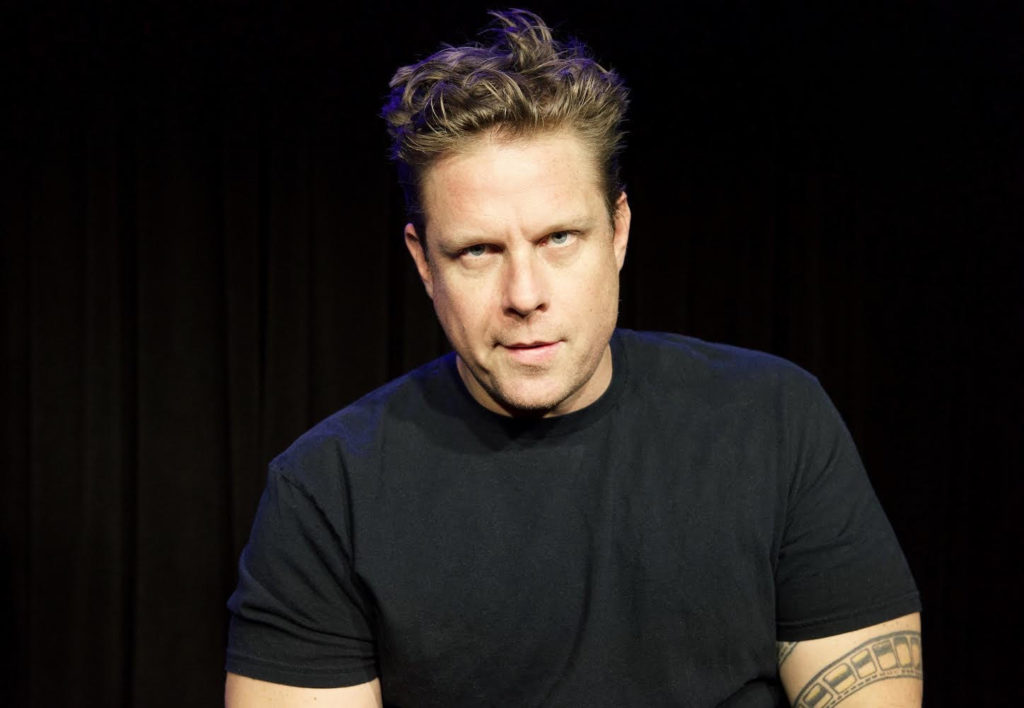
But over time, both Cowan and Bishop found their footing. And Cowan even started acting less douchey, finding the authenticity that had been missing in those early days. “I never want to come off as inauthentic, which is ironic, because I was so inauthentic in those early days, you know, being the typical snobby hipster film guy,” he says. “Looking back, it’s so obvious that it was out of insecurity because I know so much more now then I did then. The more you know, the more you realize how little you know.” Finding the right tone and personality for the podcast just took some time and comfort in his own shoes and he gradually let his guard down.
In the case of both The Film Vault and The After Disaster, the hosts are lucky to have such loyal fan bases that came back week after week, and have since they started as a radio show. Trying to force audience-building techniques into these shows—like being guests on other people’s podcasts, having big-name guests themselves, or building around a really unique hook—never worked for them.
It just “feels dishonest,” says Cowan. Forcing these techniques into his shows seemed like something that would do more harm than good, just like his early days as a know-it-all hipster. Part of their success came from not focusing so much on the numbers and strategy of it all. Both podcasts have built-in audiences and “when you do find listeners, you can never take that for granted. You’re a part of their regular schedule, and a part of their life, eventually.”
Their loyal fan base even helped Cowan raise $85,000 through crowdfunding—the majority from listeners of the two podcasts—for his first dark comedy film, Groupers. “[The listeners] gave me a bat at the plate. I swung, and I like to think that I made some decent [film] contacts,” he said. “Podcasts are about building actual relationships. People respond to podcasts so much more because they actually get to know the podcast personalities.”
Now, the focus remains on how to produce the most down-to-earth episodes he can. “We don’t ever say, ‘this is how the show should go,’” Cowan says. “[That’s] why there’s so much more loyalty, because they get to know [our authentic] personalities.” He’s hoping to tap into this audience again as he works on his next movie, which is currently in the scriptwriting process.
“I never dreamt that I’d be talking into a microphone for a living,” he says. “But I did position it so that it could help me do what I did imagine myself doing, which was making movies. When I was obsessed with that guy way back in the day, I just wanted to be near that show.”
Six months of Vicodin, 20 years in radio, and two podcasts later, Cowan certainly achieved his goal.
The After Disaster has its own unique origin story. Around 2010, Cowan, his now co-host Mike Carano, and Bran Chandler were doing an episode of The Film Vault in the studio when they weren’t supposed to.
“I would just go use these multimillion dollar studios for my own purposes,” Cowan said.
While Cowan was setting up the equipment, he accidentally switched the satellite feed to the studio. They were live in over two-hundred radio stations across the country—talking about Kentucky Fried Chicken skins and messing around in conversations for The Film Vault.
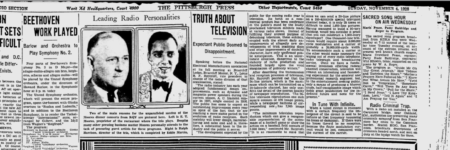
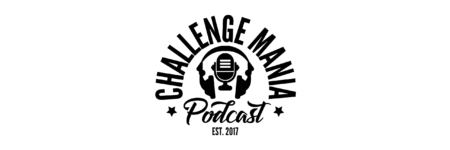
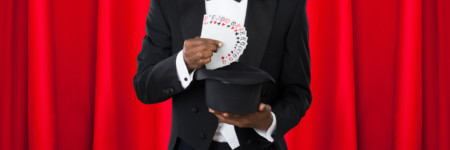
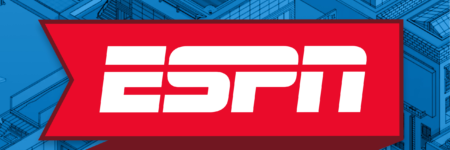
Comments